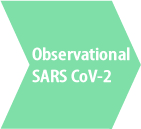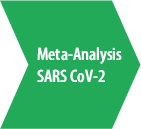Computer modeling suggest a potential for famotidine to interact with viral proteases involved in coronavirus replication. In vitro data suggest famotidine does not bind to SARS-CoV–2 proteases. A possible role for dysfunctional mast cell activation and histamine release in mediating clinical manifestations of COVID-19 has been postulated; it is further postulated that the principal action of famotidine in COVID-19 may relate to activity at H2 receptors.
At this time, we cannot recommend the use of Famotidine. Safety and efficacy for treatment of COVID-19 are not established. IDSA suggests against using famotidine for the sole purpose of treating COVID19 in hospitalized patients with severe COVID-19 outside of the context of a clinical trial.
(Infectious Diseases Society of America Guidelines on the Treatment and Management of Patients with COVID-19, updated 9/25/2020, accessed 11/17/2020)
Medication specific circumstances
Current dosing guidelines:
- Famotidine is being given IV in 120-mg doses three times daily for a maximum of 14 days or until hospital discharge, whichever comes first. Proposed daily dosage in NCT04370262 is 9 times the usual manufacturer-recommended IV adult dosage; the study excludes patients with creatinine clearance (Clcr) ≤50 mL/minute, including dialysis patients; renally impaired patients may be at increased risk of adverse CNS effects since drug half-life is closely related to Clcr.
Drug Monitoring:
- Monitor renal function; exclude high doses in patient with CrCl <50ml/minute
 = Supporting use article = Supporting use article |
 = Neutral Article = Neutral Article |
 = Contradicting use article = Contradicting use article |

  |
 |
      |
   |
 |
 |
List of major peer-reviewed studies providing context for therapy
 Observational SARS CoV-2
Observational SARS CoV-2
 Borrell B. New York clinical trial quietly tests heartburn remedy against coronavirus. Science. 2020 Apr 26. From Science magazine website (https://www.sciencemag.org/news/2020/04/new -york-clinical-trial-quietly-tests-heartburn-remedy-against-coronavirus).
Borrell B. New York clinical trial quietly tests heartburn remedy against coronavirus. Science. 2020 Apr 26. From Science magazine website (https://www.sciencemag.org/news/2020/04/new -york-clinical-trial-quietly-tests-heartburn-remedy-against-coronavirus). Mather JF, Seip RL, McKay RG. Impact of famotidine use on clinical outcomes of hospitalized COVID-19 patients. Am J Gastroenterol. 2020; 115:1617-23. PMID: 32852338. DOI: 10.14309/ ajg.0000000000000832.
Mather JF, Seip RL, McKay RG. Impact of famotidine use on clinical outcomes of hospitalized COVID-19 patients. Am J Gastroenterol. 2020; 115:1617-23. PMID: 32852338. DOI: 10.14309/ ajg.0000000000000832.
 In vivo SARS-CoV-2
In vivo SARS-CoV-2
 Janowitz T, Gablenz E, Pattinson D et al. Famotidine use and quantitative symptom tracking for COVID-19 in non-hospitalised patients: a case series. Gut. 2020; 69:1592-7. [Epub ahead of print]. PMID: 32499303. DOI: 10.1136/gutjnl-2020-321852.
Janowitz T, Gablenz E, Pattinson D et al. Famotidine use and quantitative symptom tracking for COVID-19 in non-hospitalised patients: a case series. Gut. 2020; 69:1592-7. [Epub ahead of print]. PMID: 32499303. DOI: 10.1136/gutjnl-2020-321852. Freedberg DE, Conigliaro J, Wang TC et al. Famotidine use is associated with improved clinical outcomes in hospitalized COVID-19 patients: a propensity score matched retrospective cohort study. Gastroenterology. 2020; 159:1129-31.e3. PMID: 32446698. DOI: 10.1053/j.gastro.2020.05.053.
Freedberg DE, Conigliaro J, Wang TC et al. Famotidine use is associated with improved clinical outcomes in hospitalized COVID-19 patients: a propensity score matched retrospective cohort study. Gastroenterology. 2020; 159:1129-31.e3. PMID: 32446698. DOI: 10.1053/j.gastro.2020.05.053.
List of pre-peer reviewed/pre-publication studies.
 In vitro SARS CoV-1/2 and MERS-CoV
In vitro SARS CoV-1/2 and MERS-CoV
 Malone RW, Tisdall P, Fremont-Smith P et al. COVID-19: famotidine, histamine, mast cells, and mechanisms. Preprint [not peer reviewed]. Res Sq. 2020; Jun 22;rs.3.rs-30934. PMID: 32702719. DOI: 10.21203/rs.3.rs-30934/v2.
Malone RW, Tisdall P, Fremont-Smith P et al. COVID-19: famotidine, histamine, mast cells, and mechanisms. Preprint [not peer reviewed]. Res Sq. 2020; Jun 22;rs.3.rs-30934. PMID: 32702719. DOI: 10.21203/rs.3.rs-30934/v2.
List of pre-peer reviewed/pre-publication studies providing context for therapy
 In vivo SARS-CoV-2
In vivo SARS-CoV-2
 Yeramaneni S, Doshi P, Sands K et al. Famotidine use is not associated with 30-day mortality: a coarsened exact match study in 7158 hospitalized COVID-19 patients from a large healthcare system. Gastroenterology. 2020 Oct 12;S0016-5085(20)35249-5. [Preprint, not peer reviewed.] PMID: 33058865. DOI: 10.1053/j.gastro.2020.10.011.
Yeramaneni S, Doshi P, Sands K et al. Famotidine use is not associated with 30-day mortality: a coarsened exact match study in 7158 hospitalized COVID-19 patients from a large healthcare system. Gastroenterology. 2020 Oct 12;S0016-5085(20)35249-5. [Preprint, not peer reviewed.] PMID: 33058865. DOI: 10.1053/j.gastro.2020.10.011. Cheung KS, Hung IF, Leung WK. Association between famotidine use and COVID-19 severity in Hong Kong: a territory-wide study. Gastroenterology. 2020 Jul 16;S0016-5085(20)34940-4. [Epub ahead of print]. PMID: 32682763. DOI: 10.1053/j.gastro.2020.05.098.
Cheung KS, Hung IF, Leung WK. Association between famotidine use and COVID-19 severity in Hong Kong: a territory-wide study. Gastroenterology. 2020 Jul 16;S0016-5085(20)34940-4. [Epub ahead of print]. PMID: 32682763. DOI: 10.1053/j.gastro.2020.05.098. Hogan RB II, Hogan RB III, Cannon T et al. Dual-histamine receptor blockade with cetirizine - famotidine reduces pulmonary symptoms in COVID-19 patients. Pulm Pharmacol Ther. 2020 Aug; 63:101942. [Epub ahead of print]. PMID: 32871242. DOI: 10.1016/j.pupt.2020.101942.
Hogan RB II, Hogan RB III, Cannon T et al. Dual-histamine receptor blockade with cetirizine - famotidine reduces pulmonary symptoms in COVID-19 patients. Pulm Pharmacol Ther. 2020 Aug; 63:101942. [Epub ahead of print]. PMID: 32871242. DOI: 10.1016/j.pupt.2020.101942.